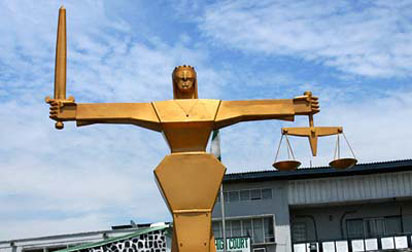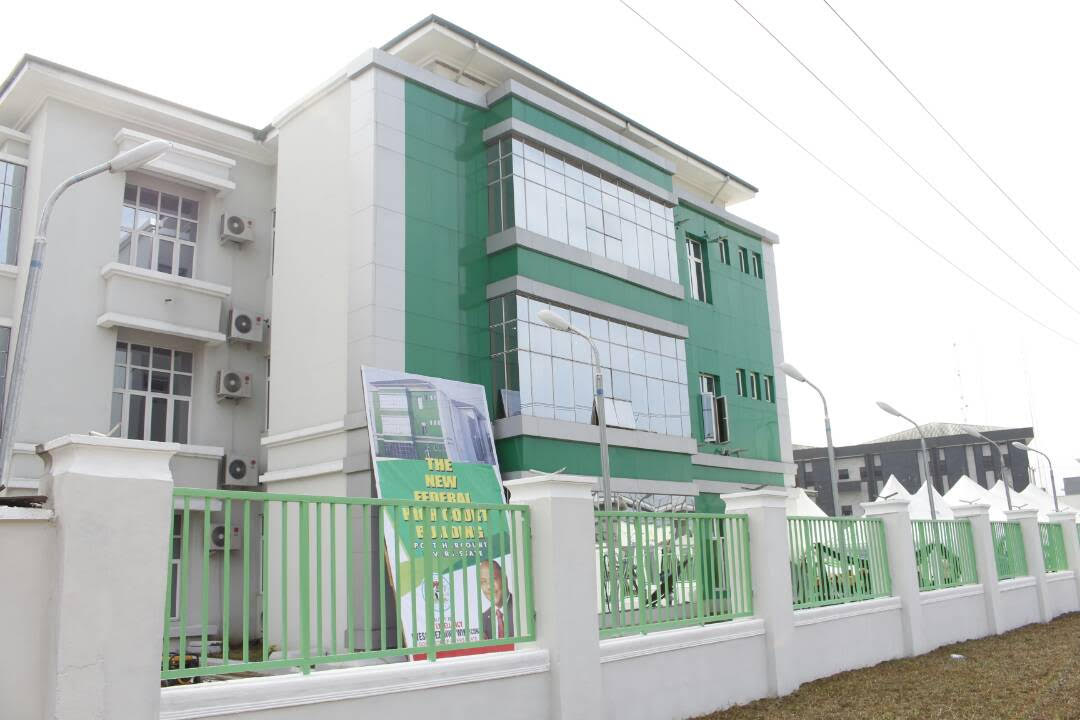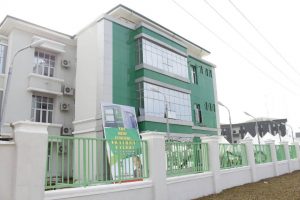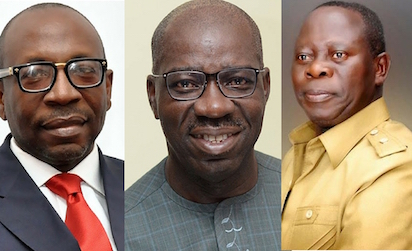The Chief Justice of Nigeria (CJN), Justice Walter Onnoghen on Tuesday unveils thirteen (13) reforms aimed at purging the Judiciary to serve the people better.
Unfolding 13 reforms designed to sanitise the judiciary and rid it of corruption, the CJN said he must henceforth approve all overseas’ trips by judges.
The CJN, who spoke at the “Dialogue of organs of government on campaign against corruption and reform of the justice sector at the Presidential Villa in, Abuja, said all travels outside Nigeria by judges will now be with his permission after an application would have been made.
The forum was organised by the Prof Itse Sagay-led Presidential Advisory Committee Against Corruption (PACAC).
Onnoghen also directed the court at any level to award punitive cost for frivolous litigation or delays caused by counsel.
In the reforms, judges are now all to go to work and sit in their courts from Monday to Friday from 9am to at least 4pm.
He listed the reforms in an address read by the President of the Court of Appeal, Justice Zainab Bulkachuwa.
Onnoghen said: “In the recent past, the judiciary has been accused of corruption along with the allegation that when complaints of corrupt practices and unprofessional conducts are brought before the National Judicial Council (NJC), the Council shields or delays investigating the allegations so levelled against judicial officers.
“Without considering the merit or otherwise of the criticisms, it goes without saying that the judiciary, like every other human institution, needs a rejigging every now and then to improve the functionality of the institution towards a speedy delivery of justice.
“I have recently authorised the issuance of a set of reforms which ultimate objective is the speedy and transparent delivery of justice.
“The delay in our justice delivery system is of great concern to me. This unacceptable situation inevitably dictates the need for a thorough and comprehensive reform of our justice sector to ensure access to justice at affordable costs and within a reasonable time
“Such a reform agenda must of necessity require the cooperation of the three arms of government, namely; the Executive, the Legislature, and the Judiciary, as well as other relevant stakeholders
“The reforms I have introduced cover a wide range of issues; from establishing new modalities for appointment of judicial officers, to tightening judicial discipline regulations, and fashioning out a speedy way to clear backlog of cases, among others.
“Clearly, any unnecessary delay of justice is equally an act of corruption. Therefore, to enhance speedy dispensation of justice, we are ensuring that the Rules of Court Procedure must contain a provision for the award of punitive cost by the court for frivolous litigation or delays caused by counsel.
“In the same vein, I am reviving and strengthening the Inspectorate Division to go round the country and ensure that, in line with Public Service Rules, all judicial officers go to work and sit in their courts from Monday to Friday from 9am to at least 4pm.
“And, in line with the NJC’s Revised Code of Conduct for Judicial Officers, I have directed that travels outside Nigeria should be with the permission of the Hon. Chief Justice of Nigeria, after an application would have been made.
“For enhanced performance, all Judges of Lower Courts in the country have been directed to submit Returns of Cases quarterly to the Federal Judicial Service Commission (FJSC) for assessment as it is done by the National Judicial Council (NJC) in respect of serving Judicial Officers of Superior Courts of Record.
“The area of appointment, all judges of lower courts and other public officers such as chief registrars and secretaries, among others, are henceforth required to write examinations and be interviewed, in addition to submission of copies of their judgments to the NJC when they are to be considered for judicial appointment.
“For members of the Bar who seek judicial appointments, the President of the Nigerian Bar Association (NBA) will, in addition to the requirements in the NJC Guidelines on Appointment of Judicial Officers, assist the NJC with a separate assessment report on all NBA candidates being considered for judicial appointment.
“In the area of discipline, members appointed to serve in any fact-finding committee will henceforth be expected to complete their investigation and report their reports within 21 days.
“And, considering the increasing number of petitions written against judicial officers, we will constitute more committees to investigate the allegations therein.
“We have a lot more in our agenda to strengthen and reposition the judiciary, but suffice it to say that fighting corruption is not the responsibility of any particular arm of government but that of every citizen of Nigeria.
“Corruption or any other form of injustice, for that matter, thrives in a culture of impunity. To carry out a successful campaign against corruption, we have to fight the culture of impunity which is an attitudinal phenomenon. If we allow the rule of law to reign, then there will be a dramatic reduction in corruption and injustice.
“Corruption starts with a decision by an individual or a group of individuals to do the wrong thing. It is as simple as that. Corruption is never an accidental act. The person who commits a corrupt act has an option to do the right thing.
“As a democracy, Nigeria is guided by the Rule of Law where the Constitution is the ground norm. It is pertinent to mention that there is no ambiguity concerning the role of the judiciary in our Constitution. It is an arbiter between parties. The core issue in the mind of an arbiter is for justice to be done and seen to be done.
“Corruption in the judicial arm of government happens if an arbiter, in this case a magistrate, a judge, a justice or a panel, having heard from all parties and having determined where justice lies, decides to do the wrong thing by giving judgment to favour a particular individual or party over another.
“On the part of the judiciary, the NJC under my watch has constituted the Corruption and Financial Crimes Cases Trial Monitoring Committee (COTRIMCO) under the chairmanship of Hon. Mr. Justice Suleiman Galadima, CFR, JSC (rtd), to serve as a check on the excesses of some bad eggs in the Judiciary. I am confident that in due course of time; our efforts to rid the Judiciary of questionable persons shall yield results.
“To match words with action, we did not just set up COTRIMCO but we have devoted a 20 per cent of our already lean budget in the Judiciary to the committee to ensure their mandate is effectively executed.
“I have also issued a directive to all heads of courts to designate some courts in their jurisdictions as Special Courts to handle corruption cases. This is a step in the right direction as lingering corruption cases will be expeditiously dispensed with.”
He reminded Nigerians that their collective efforts would be required to tackle the monster called corruption.
Onnoghen said: “Every individual must resolve to do the right thing, at the right time and without compulsion if we are determined to fight the scourge of corruption to a successful finish.
“Whatever solutions the experts will proffer at the end of this dialogue, let me add this, establishing a reward system in all strata of our society to encourage the good in us, will go a long way to encourage the values of honesty, hard work and integrity.
“More importantly, we must, as a nation, humble ourselves in prayer, turn from our evil ways and find our way back to God.”
The Chairman of the Senate Committee on Anti-Corruption, Chukwuka Utazi, said: “There is too much lip service to the fight against corruption. We need to do more to strengthen our anti-corruption agencies to discharge their duties to all whether you are in the ruling or opposition party.”
On his part, Justice A.D. Yahaya of the Court of Appeal said: “If PACAC was not there, Nigeria would have been at the worst end in corruption.
“We keep talking about corruption. It is so endemic and it is alarming. The problem is the indiscipline with us. I am sorry for this country; I do not see any light at the end of the tunnel unless we face the campaign against corruption, the way it should be faced.”
The Reforms
- Establishing new modalities for appointment of judicial officers
- Tightening judicial discipline regulations
- Fashioning out a speedy way to clear backlog of cases
- Speedy and transparent delivery of justice.
- Rules of Court Procedure now to contain provision for the award of punitive cost by the Court for frivolous litigation or delays
- Reviving and strengthening the Inspectorate Division to ensure judicial officers go to work and sit in their courts from Monday to Friday from 9am to at least 4pm.
- President of the Nigerian Bar Association (NBA) to assist the NJC with a separate assessment report on all NBA candidates being considered for judicial appointment.
- All Judges of Lower Courts and other public officers such as Chief Registrars and Secretaries, among others, are henceforth required to write examinations before being appointed
- To constitute more committees to investigate allegations against judges
- All Heads of Courts to designate some courts in their jurisdictions as Special Courts to handle corruption cases
- 20% of Judiciary Budget to be devoted to Corruption and Financial Crimes Cases Trial Monitoring Committee (COTRIMCO)
- All travels outside Nigeria by judges will now be with the permission of the CJN after an application would have been made.
- All Judges of Lower Courts in the country have been directed to submit Returns of Cases quarterly to the Federal Judicial Service Commission (FJSC)




